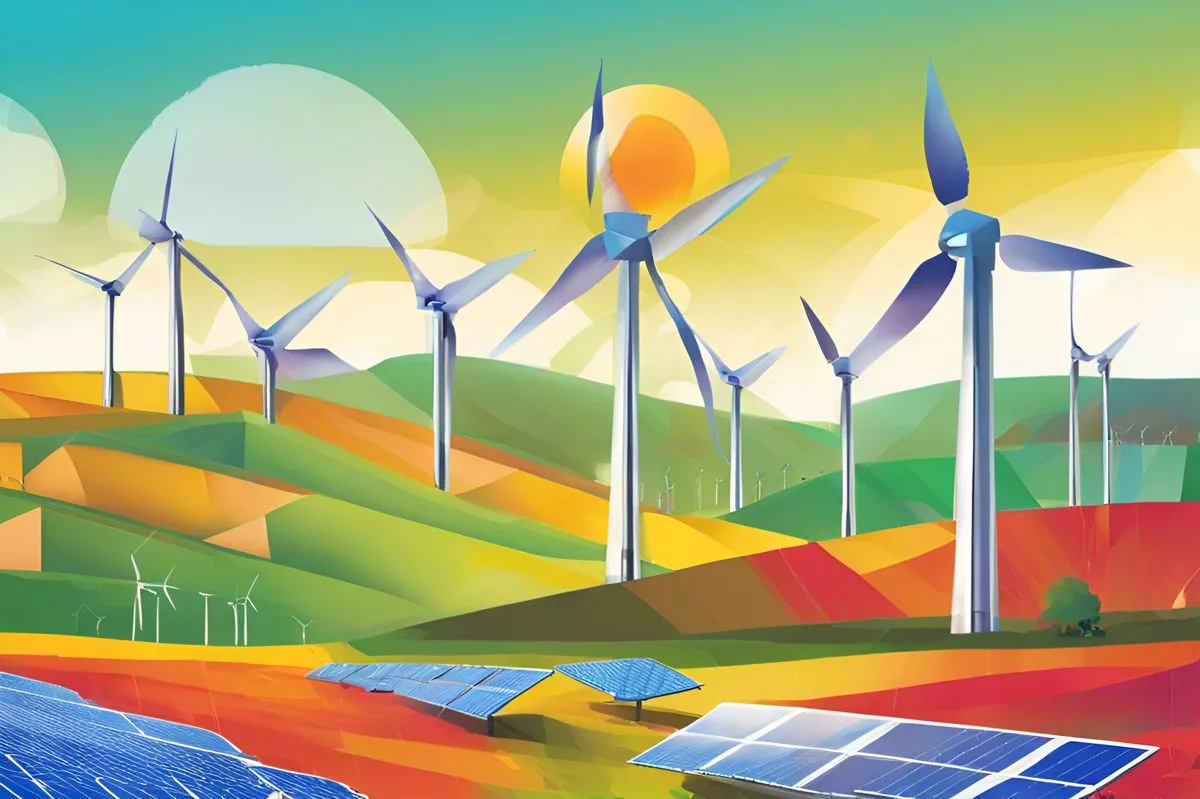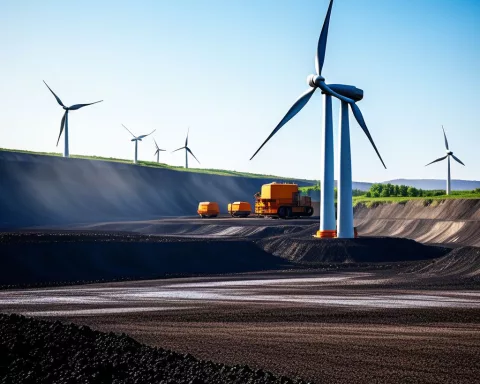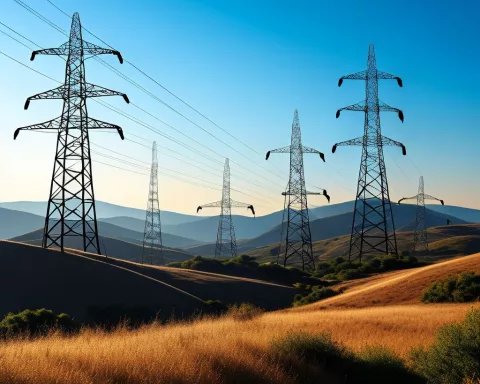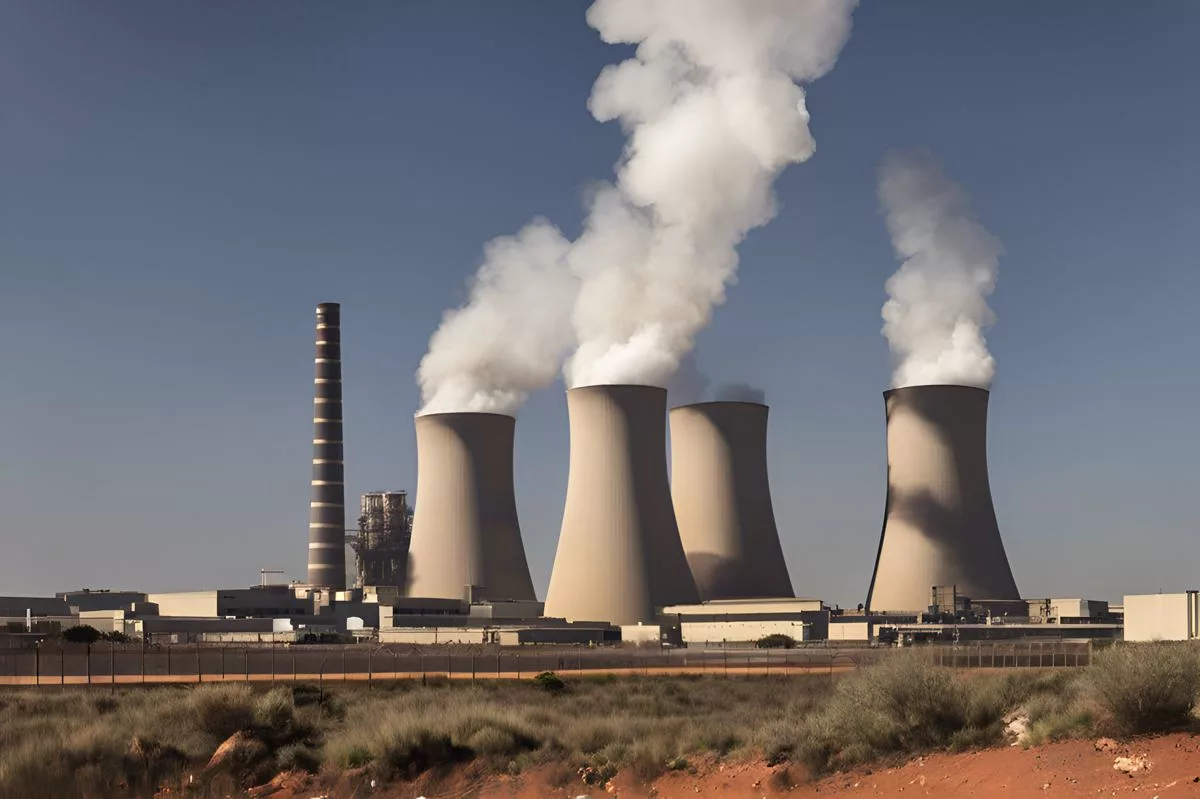South Africa is committed to rejuvenating and enhancing their energy sector through sustainable energy projects and infrastructure development. They are learning from other BRICS nations and setting key initiatives such as restructuring Eskom, enhancing generation capacity, and advancing transmission infrastructure. South Africa is dedicated to a just energy transition and international collaboration to create a diverse, flexible, and sustainable energy landscape.
Shaping a Resilient and Sustainable Energy Future: South Africa’s Vision. The Deputy President of South Africa emphasizes the significant role of the energy sector in modern societies and announces the country’s dedication to rejuvenating and enhancing their energy sector and wider economic environment through sustainable energy projects and infrastructure development. South Africa is learning from other BRICS nations and setting key initiatives such as restructuring Eskom, enhancing generation capacity, and advancing transmission infrastructure. They are committed to a just energy transition and international collaboration.
Strengthening the Energy Sector: A Pivotal Role in Modern Societies
The energy sector is the lifeblood of any contemporary society, crucial for the steady growth and prosperity of a nation. From domestic households to large industries, we are completely reliant on energy. Deputy President Shipokosa Paulus Mashatile of South Africa communicated this understanding when addressing the Energy Seminar organized by the BRICS New Development Bank (NDB).
This event served as a forum for important stakeholders from BRICS partner countries to share experiences and insights about energy reform, particularly focusing on grid transmission. Furthermore, the seminar offered a platform for the South African government to express its dedication to rejuvenating the nation’s energy sector and the wider economic environment.
Deputy President Mashatile recognized the considerable support South Africa has received from the NDB, specifically the bank’s commitment to infrastructure development assistance. He conveyed his appreciation for the USD 5.6 billion in loans granted to South Africa over the last eight years, with a significant portion aimed at sustainable energy projects.
Sustainable Energy Projects and Infrastructure
The Deputy President underscored the bank’s sanctioning of $2.3 billion for 10 renewable energy projects. These include solar PV, wind, hydropower, biomass, and hybrid systems with storage capabilities. These initiatives, designed to install a 2.8GW generation capacity, are predicted to reduce more than 4 million tons of CO2 emissions per year. This reduction is a crucial step in our global efforts to combat climate change.
In addition to renewable energy, the NDB is also striving to rectify inadequacies in freight rail infrastructure within Transnet, a crucial factor in maintaining the international competitiveness of South Africa’s goods system. This system is crucial for fostering the country’s economic growth and diversification.
Despite these accomplishments, the Deputy President acknowledged lingering challenges, particularly the slow release of funds for approved projects. To address this, he assured of consistent discussions with Minister of Finance Mr. Enoch Godongwana and his team.
Learning from BRICS nations and Setting Key Initiatives
The seminar was an opportunity to share knowledge and experiences from other BRICS nations. Gleaning from China’s rapid adoption of renewable energy to Russia’s advancements in nuclear energy, the insights acquired are invaluable. The Deputy President emphasized the significance of learning and adopting effective models for private sector involvement, innovative financing methods for energy projects, and best practices in managing socio-economic aspects of energy transitions.
In this context, Deputy President Mashatile introduced South Africa’s primary initiatives, centered on three pillars: restructuring Eskom, enhancing generation capacity, and advancing transmission infrastructure.
Eskom’s restructuring into three distinct entities: generation, transmission, and distribution, is intended to boost efficiency, enhance accountability, and stimulate competition and investment in the sector. Alongside this structural change, a comprehensive debt relief program for Eskom has also been launched.
South Africa has taken considerable strides in expanding generation capacity, including easing licensing requirements for private power generation projects and fast-tracking the rollout of renewable energy capacity through the Renewable Energy Independent Power Producer Procurement Programme (REIPP PP). Additionally, the role of natural gas as a transition fuel is being explored due to its potential to provide flexible, dispatchable power to complement the growing renewable energy fleet.
For the development of transmission infrastructure, South Africa is putting into action a bold transmission expansion plan. This plan aims to unleash the renewable energy potential in the Northern, Eastern, and Western Cape provinces and connect new generation capacity to the grid.
Just Energy Transition and International Collaboration
Deputy President Mashatile reiterated South Africa’s commitment to a just energy transition. The Just Energy Transition Partnership (JETP) with global partners is a crucial aspect of this commitment. The partnership is designed to facilitate the transition to a low-carbon economy while ensuring that socio-economic issues are tackled.
Besides local initiatives, South Africa also seeks to enhance its involvement in the Southern African Power Pool through regional integration. This regional tactic is projected to bolster energy security by pooling resources and creating opportunities for cross-border power trading.
These initiatives signify a fundamental re-envisioning of South Africa’s energy industrial complex. The transition from a centralized, coal-dominated system to a more diverse, flexible, and sustainable energy landscape is not without challenges. Nevertheless, with determination, innovation, and cooperation, South Africa is dedicated to seeing it through.
The seminar is a testament to South Africa’s willingness to learn, adapt, and collaborate. The energy future of South Africa will necessitate a blend of strategies incorporating renewable energy, energy efficiency, and sustainable development practices. However, more importantly, it will require a shared commitment, not only for powering the nation but also to stimulate economies, create opportunities for people, and protect our planet for future generations.
What is South Africa’s vision for their energy sector?
South Africa is committed to rejuvenating and enhancing their energy sector through sustainable energy projects and infrastructure development. They are dedicated to a just energy transition and international collaboration to create a diverse, flexible, and sustainable energy landscape.
What initiatives has South Africa set to enhance their energy sector?
South Africa has set key initiatives such as restructuring Eskom, enhancing generation capacity, and advancing transmission infrastructure. Eskom’s restructuring into three distinct entities: generation, transmission, and distribution, is intended to boost efficiency, enhance accountability, and stimulate competition and investment in the sector. Additionally, South Africa is exploring the role of natural gas as a transition fuel due to its potential to provide flexible, dispatchable power to complement the growing renewable energy fleet.
What sustainable energy projects has South Africa undertaken?
South Africa has undertaken ten renewable energy projects including solar PV, wind, hydropower, biomass, and hybrid systems with storage capabilities. These initiatives, designed to install a 2.8GW generation capacity, are predicted to reduce more than 4 million tons of CO2 emissions per year.
What is the Just Energy Transition Partnership?
The Just Energy Transition Partnership (JETP) with global partners is a crucial aspect of South Africa’s commitment to a just energy transition. The partnership is designed to facilitate the transition to a low-carbon economy while ensuring that socio-economic issues are tackled.
What is the Southern African Power Pool?
The Southern African Power Pool is a regional integration tactic projected to bolster energy security by pooling resources and creating opportunities for cross-border power trading.
What are the challenges facing South Africa’s energy industrial complex?
The transition from a centralized, coal-dominated system to a more diverse, flexible, and sustainable energy landscape is not without challenges. These challenges include slow release of funds for approved projects, managing socio-economic aspects of energy transitions, and rectifying inadequacies in freight rail infrastructure within Transnet.












